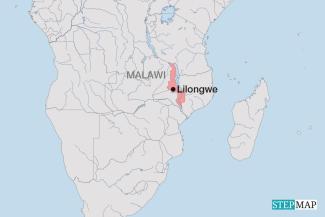Economy
Prolonged hardship in Malawi

Chakwera ran his campaign on the promise that it would take him just two years to implement policies that would change the lives of people for the better. Now, more than three years after Chakwera became head of state, many Malawians are losing hope in the presidency and abandoning the hope that their lives will turn around with the assistance of the government.
The past three years have been particularly bad for Malawi, for both internal and external reasons. The Covid-19 pandemic devasted global economies, and poor countries like Malawi suffered immensely. The emergency of global crises such as Russia’s war of aggression in Ukraine, which disrupted global supply chains, further worsened the situation. In the middle of all this, Malawi experienced the devastating tropical cyclone Freddy in 2023.
The various multiple crises have resulted in inflation, as the cost of goods and services rose. The country has experienced rising fuel prices and the decline in exports has reduced forex earnings. In a bid to salvage the situation, the country had to devalue the currency, with the last devaluation happening in November 2023. With a weakened Kwacha, things got worse for citizens.
Speaking about his government’s economic policies, Chakwera recently told Malawians: “I know that all of you are feeling the agony of the painful corrections we have had to make to give our economy a fresh start, and I want you to know that I have not made these painful corrections lightly.”
45-year-old Banda, a father of three children and businessman in Lilongwe, blames Chakwera and his government’s economic interventions for the inflation that has affected his ability to buy food and agricultural inputs.
“Before the devaluation, the price of a 50 kilogramme bag of fertiliser was MK 75,000 and today the same bag costs MK 90,000. Where does the president think people will get money to buy fertiliser?” he asked. “The president and his ministers are not feeling the pain. Everything has now gone up, but the incomes of people are still the same,” Banda added.
The country’s opposition politicians also criticise the move to devalue the currency. Ben Phiri, a member of parliament belonging to the Democratic Progressive Party, described the government’s decision to devalue the currency as a “death sentence to Malawians”.
President Chakwera and his government are however confident that their economic policies will bear fruit. After the devaluation, the country qualified for credit from the International Monetary Fund (IMF) worth $ 175 million under the Extended Credit Facility (ECF).
Chakwera believes that this will help the country get back on its feet. “Now that we have successfully restored international confidence and international support, we once again have the opportunity to put it to good use,” he said.
With the IMF credit, the Malawian government is now promising to implement policies targeting the country’s poor. Finance and economic affairs minister, Simplex Chithyola, says that the government will increase cash transfers to the poor from 10 % to 15 % of the population.
Raphael Mweninguwe is a freelance journalist based in Malawi.
raphael.mweninguwe@hotmail.com














